Posted on 08/2/2025 00:00 AM (CNA - Saint of the Day)
 St. Alphonsus Liguori
St. Alphonsus Liguori
Feast date: Aug 01
St. Alphonsus Liguori is a doctor of the Church who is widely known for his contribution to moral theology and his great kindness.
He was born in 1696 in Naples to a well-respected family, and was the oldest of 7 children. His father was Don Joseph de' Liguori, a naval officer and Captain of the Royal Galleys, and his mother came from Spanish descent. He was very intelligent, even as a young boy. As a boy of great aptitude, he picked up many things very quickly. St. Alphonsus did not attend school; rather, he was taught by tutors at home where his father kept a watchful eye. Moreover, he practiced the harpsichord for 3 hours a day at the heed of his father and soon became a virtuoso at the age of 13. For recreation, he was an equestrian, fencer, and card player. As grew into a young man, he developed an inclination for opera. He was much more interested in listening to the music than watching the performance. St. Alphonsus would often take his spectacles off, which aided his myopic eyes, in order to merely listen. While theatre in Naples was in a relatively good state, the young saint developed an ascetic aversion to perhaps what he viewed as gaudy displays. He had strongly refused participation in a parlor play.
At the age of 16, he became a doctor of civil law on January 21, 1713, though by law, 20 was the set age. After studying for the bar, he practiced law at the age of 19 in the courts. It is said in his 8 years as a lawyer, he never lost a case. Although, he resigned from a brilliant career as a lawyer in 1723 when he lost a case because he overlooked a small, but important, piece of evidence.
His resignation, however, proved profitable for the Church. He entered the seminary and was ordained three years later in 1726. He soon became a sought-after preacher and confessor in Naples. His so sermons were simple and well organized that they appealed to all people, both learned and unlearned. However, his time as a diocesan priest was short-lived: in 1732, he went to Scala and founded the Redemptorists, a preaching order.
He was a great moral theologian and his famous book, “Moral Theology”, was published in 1748. Thirty years later, he was appointed bishop, and he retired in 1775. He died just over 10 years later in 1787, and was canonized in 1839.
Posted on 08/1/2025 21:19 PM (CNA Daily News)
 The relic stolen from St. Dominic Savio Parish. / Credit: St. Dominic Savio Parish
The relic stolen from St. Dominic Savio Parish. / Credit: St. Dominic Savio Parish
ACI Prensa Staff, Aug 1, 2025 / 17:19 pm (CNA).
A relic of Blessed Carlo Acutis was stolen from the St. Dominic Savio Parish in the Argentine Archdiocese of Paraná. The pastor is seeking to recover it, emphasizing that it has no material value but does have profound spiritual significance for the community.
Father Walter Minigutti, the pastor, told local media that the theft occurred minutes after noon on July 25 and was recorded on security cameras. A couple can be seen entering the church and removing the bolted glass case containing the relic, enthroned in 2021.
“This is truly a very sad day for us, and we need our saint [Carlo Acutis] to return to the parish. We are sharing the security camera footage, where this couple can be seen,” Minigutti said in an interview with the Argentine news site El Once.
A formal complaint has already been filed with the authorities, and the incident is under police investigation. Camera footage will be analyzed to identify those responsible for the theft.
The priest asked for the reliquary to be returned: “I beg whoever took the relics to return them. They have no monetary value, but they do have great spiritual value for our community,” he said. The reliquary contains a first-class relic: a strand of hair and a fingernail belonging to the future saint.
In a July 31 interview with ACI Prensa, CNA’s Spanish-language news partner, the priest said that “there is still no news” and prayed “to the Lord and the blessed that this cherished relic may return.”
The figure of Carlo Acutis is very significant to the parish, so much so that a secondary school is being built in his name.
The relic was kept in a place specially prepared for its display and veneration, with a glass case containing a reliquary bearing the image of the young blessed dressed in everyday clothes, honoring his characterization as a “saint in jeans and sneakers.”
“The place was designed so that the faithful could contemplate him. He is a very contemporary saint, close to young people, and his life conveys a powerful message about faith in the present time,” Minigutti said in his interview with El Once.
Acutis, who died at the age of 15, was deeply devoted to the Eucharist: “He went to Mass every day, prayed the rosary, did Eucharistic adoration, and used the internet to evangelize. He’s an example for our youth,” the priest said.
“This is devastating for us because it’s something very dear to us, but I have great faith and confidence in the residents of Paraná and Santa Lucía neighborhood, so please give us a hand to recover it,” he appealed.
In a few days, on Aug. 12, it will be four years since the relic was enthroned in the church. For that reason, a Mass in honor of Acutis is celebrated on the 12th of every month. The blessed’s feast day is Oct. 12, the day he died.
Acutis is scheduled to be canonized on Sept. 7 along with Blessed Pier Giorgio Frassati.
“A blessed is one of the many blessings that God gives to the Church, and having his relics is having part of his life’s story among us,” the parish priest stated, emphasizing that “the sentimental, religious, and spiritual value he holds for the community is incalculable.”
Finally, he called for “reflection and solidarity: If anyone knows these people or just finds these relics, please bring them back to the parish.”
This story was first published by ACI Prensa, CNA’s Spanish-language news partner. It has been translated and adapted by CNA.
Posted on 08/1/2025 20:49 PM (CNA Daily News)
 Young people raise their voices from the Basilica of Santa Maria in Trastevere on Aug. 1, 2025. / Credit: Daniel Ibáñez/CNA
Young people raise their voices from the Basilica of Santa Maria in Trastevere on Aug. 1, 2025. / Credit: Daniel Ibáñez/CNA
ACI Prensa Staff, Aug 1, 2025 / 16:49 pm (CNA).
“We’re not tourists in spiritual things. We are pilgrims [searching for] meaning. We come with backpacks full of doubts, wounds, songs, and hope. And with a certainty in our hearts: Christ is alive. And he calls us.”
Thus begins the “Manifesto of the Young Christians of Europe,” the heart of the “Rome ’25-Way of St. James ’27-Jerusalem ’33” project, which aims to “restore the soul” of the Old Continent and invites Christians to encounter the Lord through pilgrimage, healing, and evangelization.

This initiative, which began to take shape two years ago with the support of the Bishops’ Subcommission for Youth and Children of the Spanish Bishops’ Conference, as well as the Archdiocese of Santiago de Compostela and the Church in Jerusalem, invites young Christians across the continent to open up a new pathway to faith and hope in view of the Jubilee of the Redemption, which will be celebrated in 2033.
The initiative is also supported by the Holy See and Pope Leo XIV, to whom it was presented after a general audience at the Vatican on June 25.
The key moment for the project took place on the morning of Friday, Aug. 1, amid the Jubilee of Youth. Many young people gathered at St. Mary’s Basilica in Trastevere to give voice to a generation that wants to create a new Europe with Christ at its center.
“This manifesto is an act of faith and a call to hope. It is the voice of a [generation of] youth who do not want to remain on the sidelines, who don’t have to clamor, ‘We want more [material things],’ we want Christ at the center... The revolution has begun; the Spirit is blowing,” said Fernando Moscardó, who served as one of the youth spokespersons for the project during the presentation in Rome in July.
On that occasion, Monsignor Marco Gnavi, parish priest at St. Mary’s Basilica in Trastevere and host of the Aug. 1 event, said he was “surprised by the enthusiasm of young people,” especially in a time of “painful changes.”
The document has been published on the project’s official website, and all those “who feel part of it” are encouraged to sign it.
In addition, all information, updates, and progress on the initiative will be shared through social media under the handle @J2R2033 (Journey to Redemption 2033).
At the Aug. 1 event, attended by Archbishop Rino Fisichella, pro-prefect of the Dicastery for Evangelization, several young people of various nationalities read the manifesto aloud.
Fisichella also dedicated time to praying for peace in the world, especially for Ukraine and the conflict in the Holy Land. Among those present were young people from Palestine and Israel.
This story was first published by ACI Prensa, CNA’s Spanish-language news partner. It has been translated and adapted by CNA.
Posted on 08/1/2025 20:19 PM (CNA Daily News)
 The U.S. Department of Veteran Affairs Medical Center in New York City. / Credit: Spencer Platt/Getty Images
The U.S. Department of Veteran Affairs Medical Center in New York City. / Credit: Spencer Platt/Getty Images
Washington, D.C. Newsroom, Aug 1, 2025 / 16:19 pm (CNA).
President Donald Trump’s administration is proposing a rule change that would prohibit medical centers operated by the Department of Veterans Affairs (VA) from performing both surgical and chemical abortions in most cases and from providing counseling that encourages abortion.
The proposed regulatory change, submitted by the VA on Aug. 1, must undergo a 30-day public comment period before it can be adopted.
Under the proposal, abortion would only be allowed when the mother’s life is at risk. The text also clarifies that women can still receive all necessary treatments for ectopic pregnancies and miscarriages.
In an explanation provided with the rule change proposal, VA regulators note that Congress created the department to provide “only needed medical services to our nation’s heroes and their families.” It states that unless the mother’s life is at risk, “abortion is not a ‘needed’ VA service.”
From 1999 — when the VA established its first medical benefits package — through September 2022, the department did not offer abortion or pro-abortion counseling. It was not until after the Supreme Court overturned Roe v. Wade and allowed states to restrict abortion that President Joe Biden’s administration changed the regulation to permit broad abortion coverage at the VA.
The Biden-era rule permits the VA to perform abortions if “the life or the health” of the woman is endangered by the pregnancy, which broadly extends to both physical and mental health. The new Trump administration proposed rule would create a more strict standard, only permitting abortion “when a physician certifies that the life of the mother would be endangered if the fetus were carried to term.”
Under the Biden-era rule, the VA can also perform abortions in cases of rape and incest, which are self-reported and not verified. The Trump administration’s proposed rule change would not permit the VA to perform abortions in these instances.
The VA’s explanation of the proposed rule change notes that prior to the Biden administration’s shift, the VA “had consistently interpreted abortion services as not ‘needed’ medical services and therefore not covered by the medical benefits package.” It states that the Biden-era rule is “legally questionable.”
“This proposed rule restores VA to its proper role as the United States’ provider of needed medical services to those who served, delivered on behalf of a grateful nation,” the explanation reads.
A spokesperson for the VA said in a statement provided to CNA that the prior administration’s shift was “politically motivated” and that “federal law and long-standing precedent across Democrat and Republican administrations prevented VA from providing abortions and abortion counseling.”
“[The] VA’s proposed rule will reinstate the pre-Biden bipartisan policy, bringing the department back in line with historical norms,” the spokesperson added.
When the Biden administration adopted the rule to expand abortions at the VA, the archbishop of the Archdiocese for the Military Services, USA, Timothy P. Broglio, condemned the rule as “morally repugnant and incongruent with the Gospel.”
“I implore the faithful of this archdiocese to continue to advocate for human life and to refuse any participation in the evil of abortion,” Broglio said at the time.
Posted on 08/1/2025 19:56 PM (CNA Daily News)
 Monsignor Renzo Pegoraro is the new president of the Pontifical Academy for Life. / Credit: ACI Stampa
Monsignor Renzo Pegoraro is the new president of the Pontifical Academy for Life. / Credit: ACI Stampa
Washington, D.C. Newsroom, Aug 1, 2025 / 15:56 pm (CNA).
The new president of the Pontifical Academy for Life, Monsignor Renzo Pegoraro, says the Church has plans to address a number of pressing matters surrounding human dignity, including artificial intelligence (AI), health systems, and the environment.
When Pegoraro stepped into his new role, he said Pope Leo XIV recommended the academy continue a dialogue “with experts from various disciplines on the challenges facing humanity on the theme of life and the quality of life in different contexts.”
The academy will also continue its focus on “issues related to the beginning and end of life as well as environmental sustainability, equity in health care systems, the right to care, health, and essential services.”
In an interview with the U.S. Conference of Catholic Bishops’ (USCCB) Catholic News Service, Pegoraro said as “we live in a difficult landscape … and human life on the planet is truly challenged,” the Catholic Church “has a wealth of wisdom and a vision to serve everyone in order to make the world a better and more livable place.”
Pegoraro said that “all facets of society” must be involved in the “debate” regarding technology.
“Really, everything can be addressed if all of society — policymakers, governments, the Church, different organizations — put the issue of the use of technology at the forefront,“ Pegoraro said. “And the media also have a very important role in disseminating information and subject matter on this.”
As AI advances at fast rates, Pegoraro said, the Pontifical Academy for Life “can make an important contribution to the development of the papal magisterium, in line with all the dicasteries.”
The academy, with Catholic Physicians Throughout the World, will organize an international meeting in Rome in November on “AI and Medicine: The Challenge of Human Dignity.” The conference will “confront the changes introduced by AI” and “enhance the ‘Rome Call for AI Ethics,’” a 2020 document that lays the foundations for an ethical use of AI.
The progress of AI and robotics, especially in the health field, is “extraordinary,” but “we must never forget that the needs of the person who is sick and in need of help are the priority,” Pegoraro said.
Pegoraro shared that the Church “will address the sustainability of health systems in February 2026, with examples from five continents and detailed studies.”
Leaders will ensure that “ethical framework” will be a theme at the international congress.
“We want to end up with a strong call to understand that ‘health’ and health systems must provide answers centered on life in all contexts, in all social and political realms,” Pegoraro said.
“In addition to scientific knowledge, there is a need for an ethical point of view and an awareness of the questions that come from patients, from those who are sick.”
Pegoraro highlighted the importance of supporting the sick through end-of-life care. The academy “promotes palliative care, always and especially in the final and fragile phases of life, always asking that there be attention to and respect for the protection and dignity of people who are frail.”
When asked about “aggressive treatment and the requirement to provide food and hydration to individuals in a vegetative state,” Pegoraro said it is “very complex.” But, he said, “we need to understand how to interpret treatments so that they may support and care for sick people.”
“Every situation is to be evaluated on a case-by-case basis so that they support the sick person and are not a source of further suffering,” Pegoraro said. “There are no ready-made solutions; instead, an approach of constant dialogue between doctor, patient, and family members must be fostered.”
According to Pegoraro, the most urgent bioethical and AI-related issue to tackle is “data management, its use, and storage, the objectives of the so-called ‘Big Companies,’” including Google, Apple, Facebook, and others.
“The topic of human life must be posed by looking at all dimensions of its development, at different social and political contexts, at its connection with respect for the environment, and by scrutinizing how technologies either help us live more fully and better or [hurt us by] providing terrible tools for control and manipulation.”
The topic of data is key, because “today, the wealth of big industries is the data we ourselves put on the internet,” Pegoraro said.
“We need a public debate on a global scale,” he said, “a grand coalition aimed at the respect of data … The framework is clear and Pope Francis gave it to us with Fratelli Tutti, expanding on Vatican II: We are one human family, and the issues of development and life affect every one of us.”
Posted on 08/1/2025 19:54 PM (Detroit Catholic)
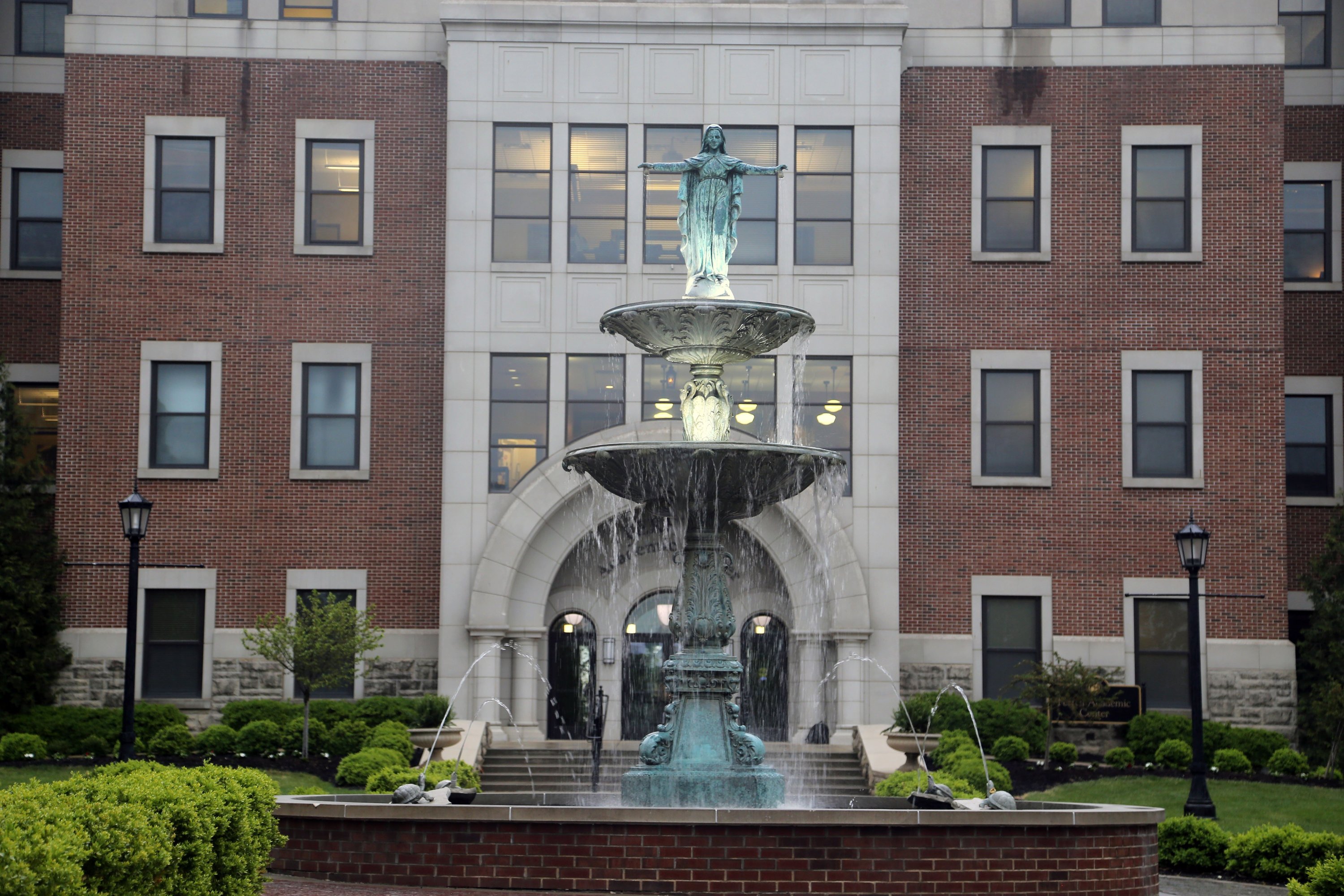
Posted on 08/1/2025 19:43 PM (Detroit Catholic)
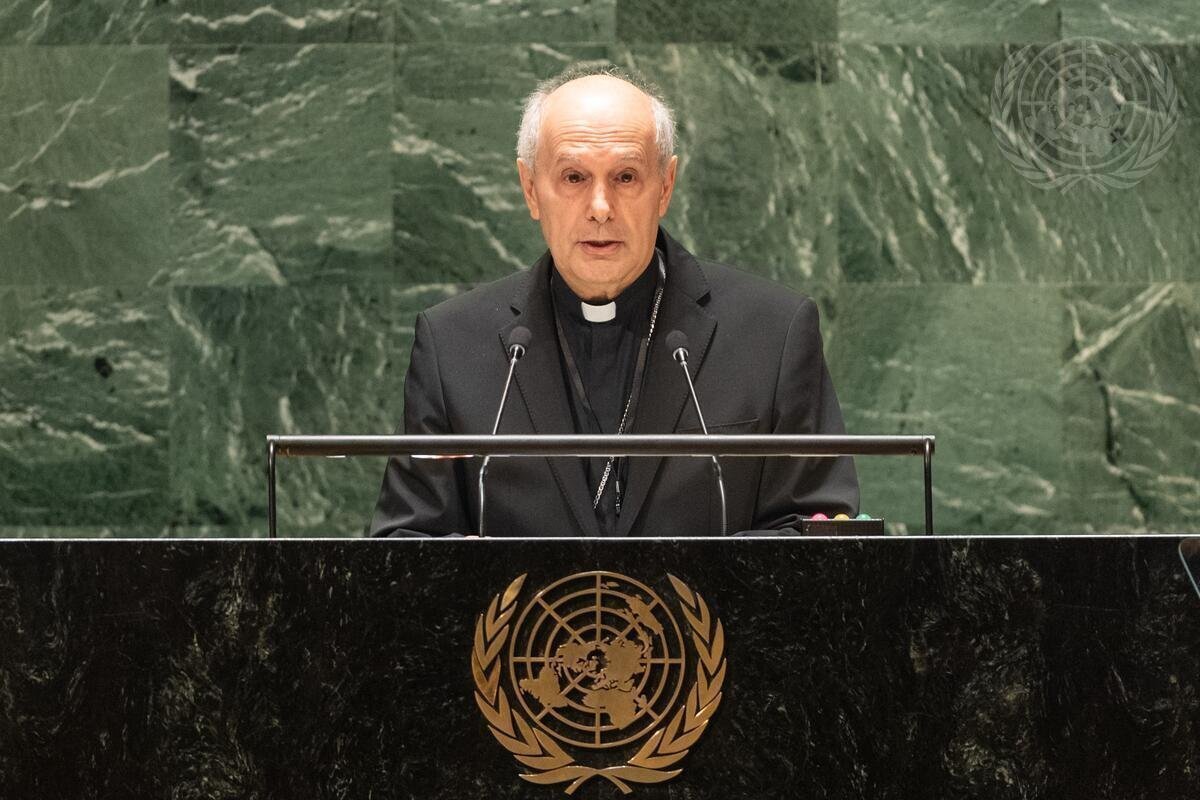
Posted on 08/1/2025 19:39 PM (Detroit Catholic)
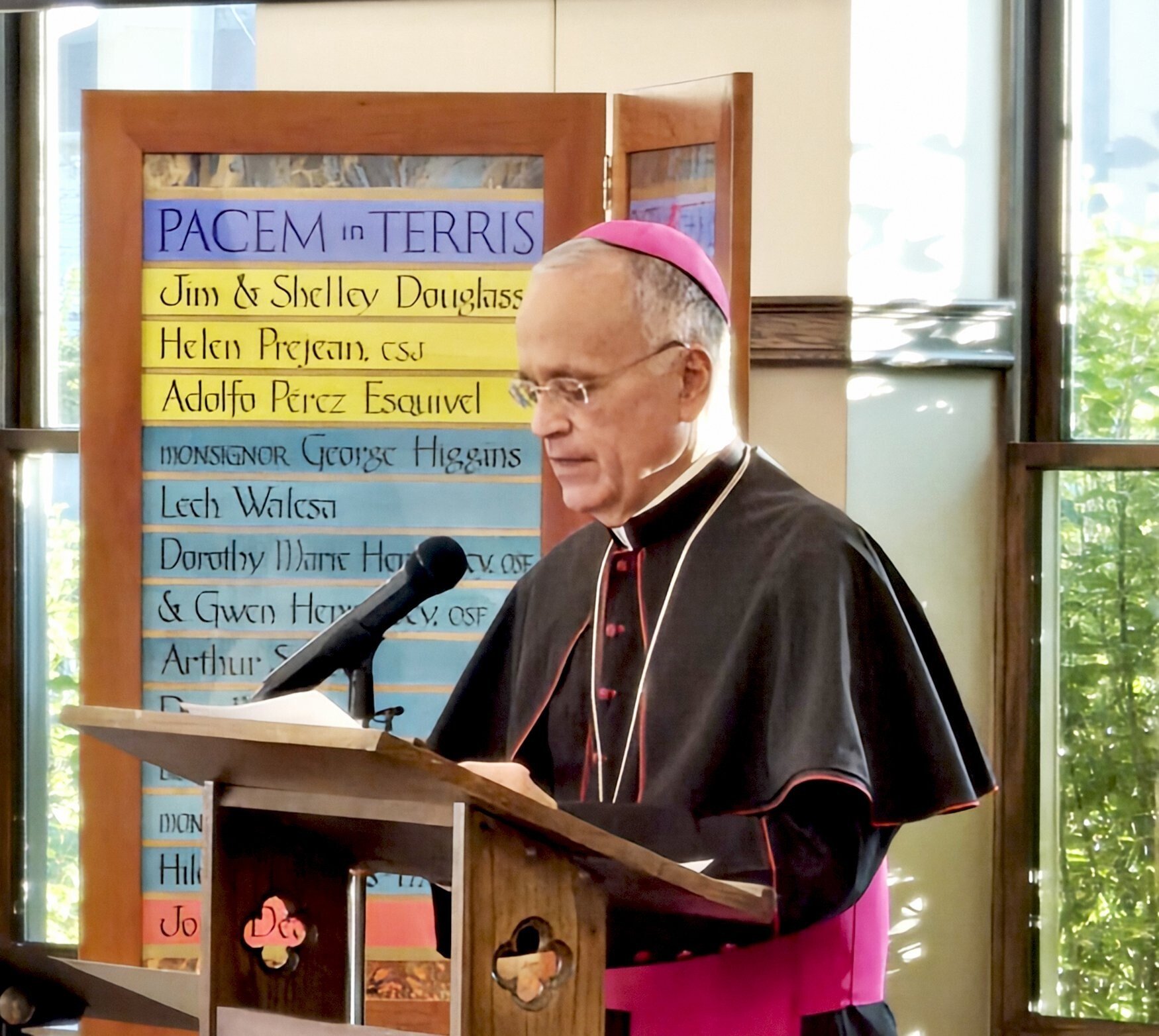
Posted on 08/1/2025 19:34 PM (Detroit Catholic)
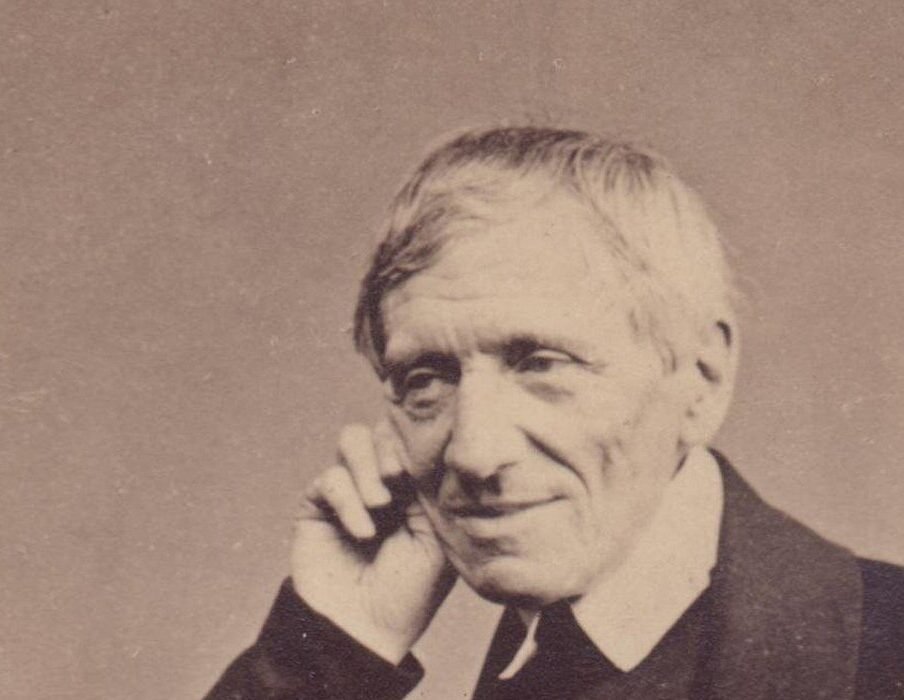
Posted on 08/1/2025 19:15 PM (Detroit Catholic)
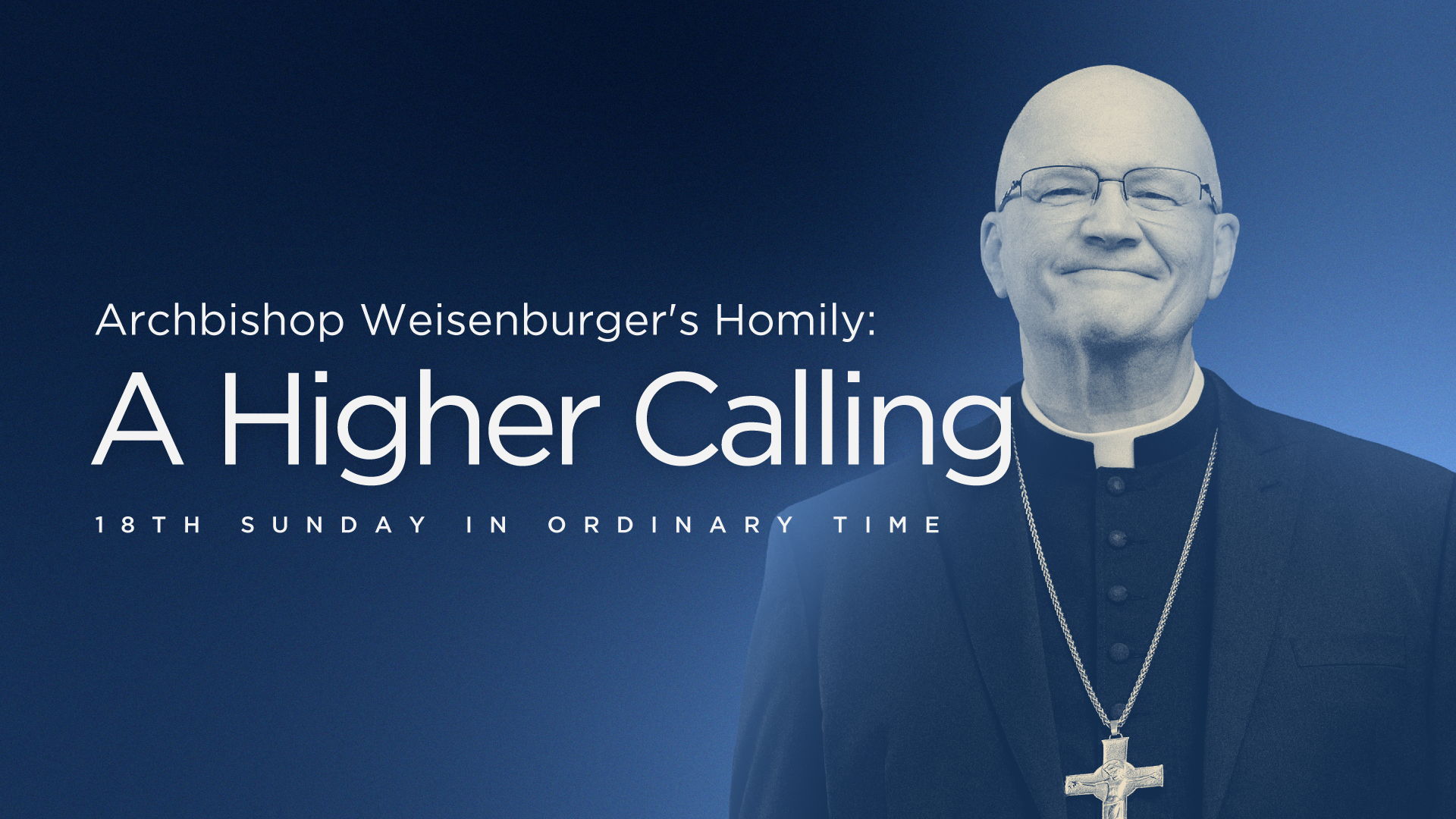
In the Gospel reading for Sunday, Aug. 3, 2025, the 18th Sunday in Ordinary Time, Jesus shares a parable about a wealthy man he calls a fool — not for being rich, but for being deaf to a higher calling. In this homily reflection, Archbishop Weisenburger takes us into this sobering look at the insidious power of greed.